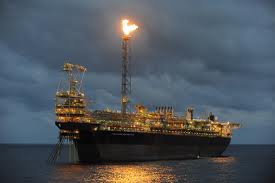Special topics
 The oil and gas industries provides revenue to the state for economic growth and development but it also have other negative impacts on the environments in which they undertake their activities. some of these negativity include gas flaring, oil spillage just to mention a few.
The oil and gas industries provides revenue to the state for economic growth and development but it also have other negative impacts on the environments in which they undertake their activities. some of these negativity include gas flaring, oil spillage just to mention a few.
The three ways in which the oil and gas industry impact on society and the environment are climate change, operations on land and sea; and positive or negative effect on national economies. However, the oil industry, historically, has periods of greed and carelessness such that when not regulated could destroy habitats and damage biodiversity.
Furthermore, oil and gas spills at sea have damaged mangrove forests, coral reefs and fisheries, both through major accidents and regular leakage from tankers, loading buoys and drilling rigs, and platforms. Additionally, transport of oil also causes ecological damage. For examples, there are an estimated 16000 spills during the construction of the Trans-Alaskan pipeline (Dudley and Scolton, 2000). Oil tanker accidents are well-known examples of ecological disasters that have long term effects. In general, the extractives industries have failed to make a contribution to sustainable development and to protect the environment adequately.
Many civil organizations consider the industry as having contributed to pollution, corruption and civil disturbances in a number of countries, particularly in Africa.
In conclusion, even though the oil and gas industry provides revenue to the countries in which they are extracted, their negative impacts on the environment through spillage undermines the sustainability of the development that occurs in the countries. It is therefore advisable that, the oil and gas extractive companies performs their activities with focus on environmental protection and safety.
By: David Aduhene Tanoh-www.reportingoilandgas.com